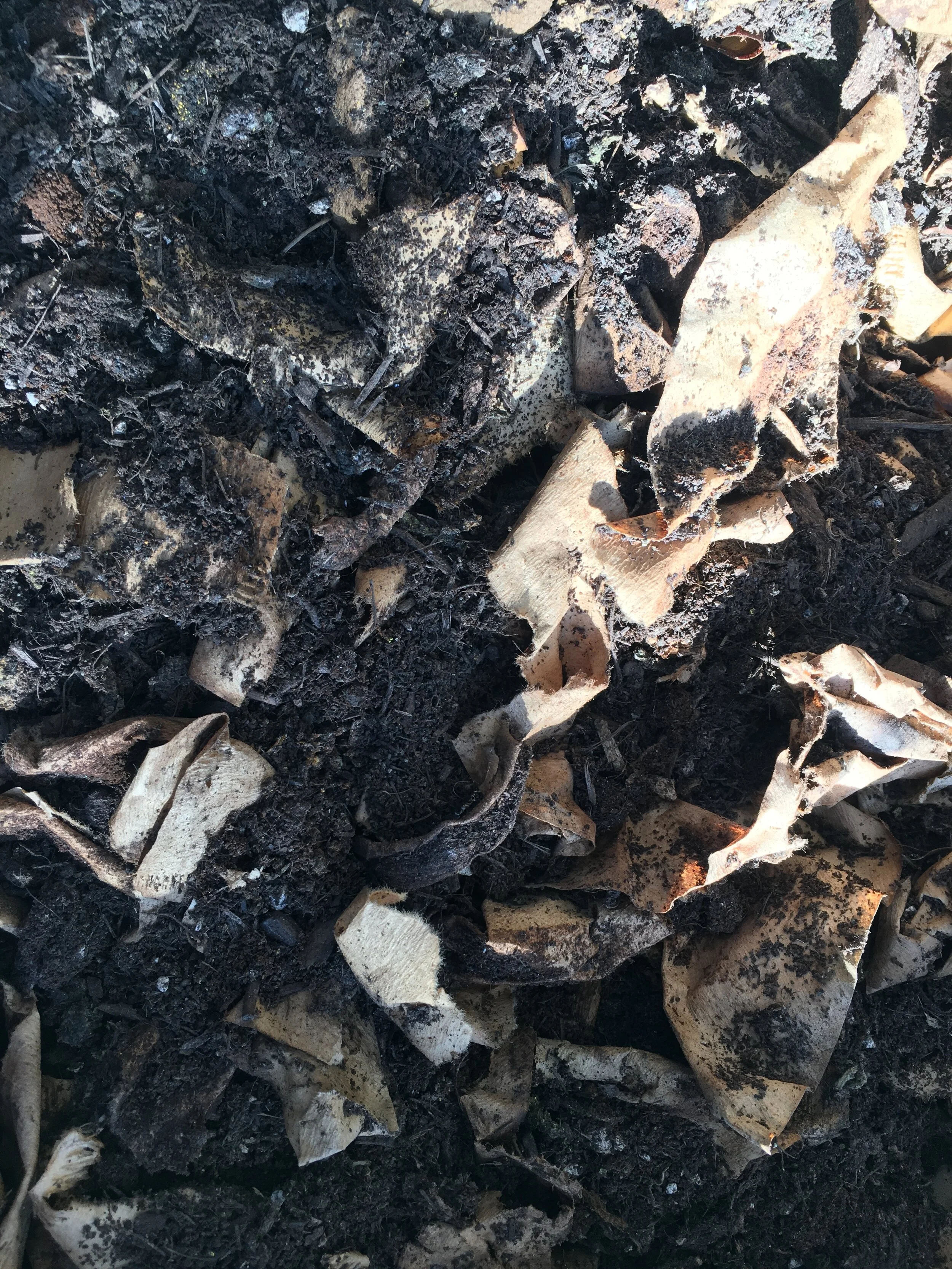During the early days of quarantining and sheltering in place, I read a New York Times article about composting in your home. The article talked about using a cardboard box and composting in your living room. I decided to try it, not in my living room but outside our garage. I’ve been diligently putting our coffee grounds with the unbleached filters, tea leaves, and vegetable peelings in there, making sure to turn it and keep it a little moist. I’ll have to let you know in six to eight months if everything breaks down into the rich soil that was promised.
I also happened to run across a poem by Teddy Macker called “A Poem for My Daughter.” It talks in the first stanza about pain and how we often view pain as a mistake rather than a part of life. The poem goes on to use a metaphor about composting to explain how pain is transformed:
if the rank and dank and dark
are handled well, not merely discarded,
but turned and known and honored,
they one day come to beds of rich earth
home even to the most delicate rose.
Macker’s poem reminds me to see life’s difficulties like composting, allowing time and thoughtful reflection to transform what is painful and difficult into peaceful regeneration. It’s a type of magic, one that hardly seems possible at first. What I put into the compost seems to be worthless and not worth saving, but I’m waiting to see if it turns into good dirt. Maybe pain can be composted, too.
